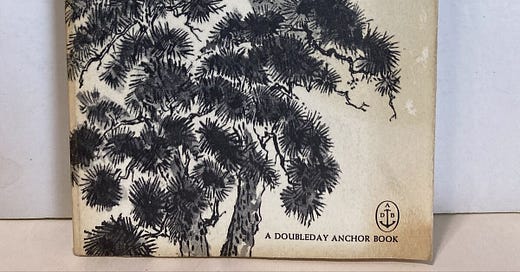In 1929, scholars Witter Bynner and Kiang Kang-Hu published The Jade Mountain, a Chinese anthology from the Tang Dynasty’s (618-906) golden era of poetry. The Empress Wu Chao, the “Woman Emperor,” would require all civil servants to be tested on their poetry skills in order to broaden their administrative talents and enrichen their citizenship. Her initiative made every government official a poet.
Centuries later, former slave and abolitionist Frederick Douglass wrote that knowing how to read was a requirement for becoming fully human. Douglass understood that reading and writing ignited human cognition, excited our consciousness, maturing the human soul.
My late father-in-law kept a copy of The Imitation of Christ on the lamp table next to his living room chair. He had an uncanny ability to distill the words of that meditative book into prayer and everyday living. My sense was that he was always refining his response to life’s difficulties as well as preparing for citizenship in the City of God. Even before a simple meal of pizza, salad and beer on a Friday night, he always included a short, heart-felt prayer to those who bore illness or had passed on. He finished the prayer thanking the Almighty for the day He had given us, whether it was a summer scorcher or a bleak, midwinter afternoon with snow thundering past the kitchen window.
Like my father-in-law’s prayer, The Jade Mountain honors that daily round of beauty and sadness in some three hundred poems from the Tang Dynasty.
Here’s a couple of lines from a poem a poet sent to his friend:
No ripples in the river, no mist on the islands,
Yet the landscape is blurred toward my friend in Ch’u …
Or this frightening moment expressed in “Crossing the Han River” by Li Po:
Away from home, I was longing for news
Winter after winter, spring after spring.
Now, nearing my village, meeting people,
I dare not ask a single question.
And one of my favorites, “In the Quiet Night,” also by Li Po:
So bright a gleam on the foot of my bed
Could there have been a frost already?
Lifting myself to look, I found that it was moonlight.
Sinking back again, I thought suddenly of home.
Editor’s Note: More meditations on and readings from The Jade Mountain will be coming soon in podcast form, see the first here:
Also see this reflection on The Imitation of Christ:






